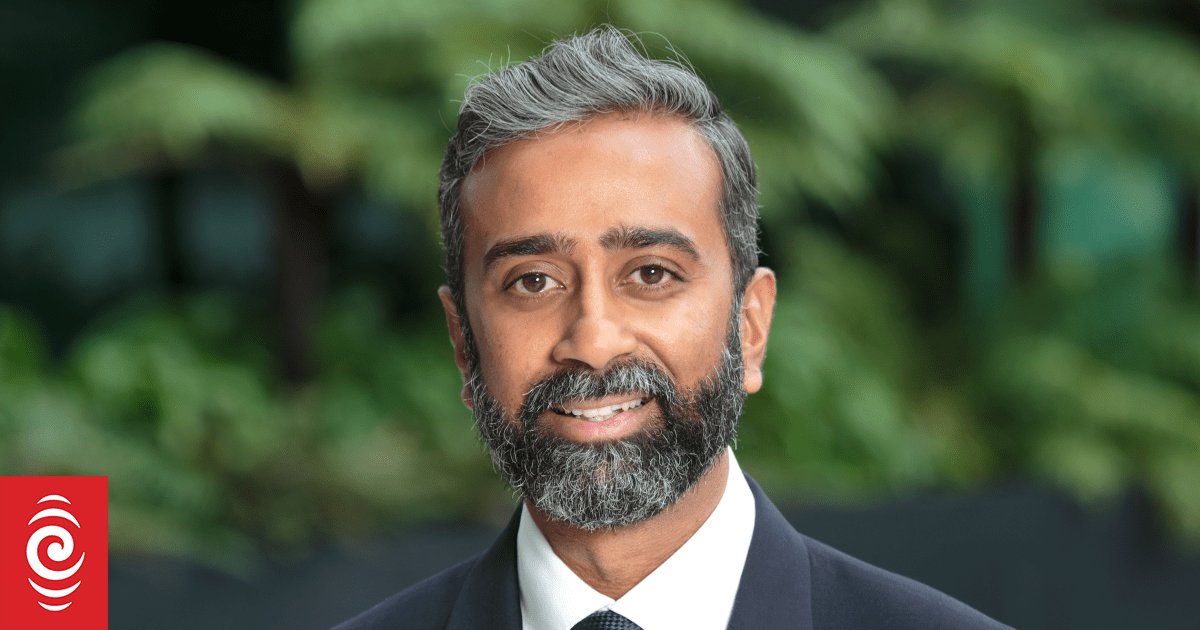Air New Zealand chief executive Nikhil Ravishankar.
Photo: Supplied / Air NZ
Air New Zealand’s new boss says certain domestic flights should have some form of subsidy to keep routes operational.
In January, the airline canned direct flights from Invercargill to Wellington, citing tough economic times.
Nikhil Ravishankar replaced Greg Foran as Air NZ chief executive this month, and told Checkpoint a situational subsidy might be necessary.
“This is an emerging area where I’m starting to think about it a lot more than I’ve had to previously,” he said.
“But if I can share it as an opinion, I think there is a need for certain routes to have some form of a subsidy. I’m sort of starting to refer to it as a sort of situational subsidy.
“You know, when the economy is not doing so well, when demand is low, we may need some subsidy to keep some of the routes going.”
But Ravishankar said when the economic environment was in better shape, a subsidy wouldn’t be needed and called for a “very surgical” approach.
Ravishankar said he didn’t have an answer for who would pay for it, but he would be having conversations with the government.
“Air New Zealand’s 81 percent owned by you, and I, and our fellow citizens and the remaining 19 percent – a lot of that is also Kiwi Share.
“So we are, to an extent, subsidising these sub-economic routes. But I think they’re critical routes. They connect New Zealanders to each other, and they drive GDP growth.”
We do need to think about how we keep these routes going, he said.
Ravishankar said part of Air NZ’s domestic strategy was to increase flights during the middle of the day.
“I think that’s one way we can really impact, especially leisure travel, where you’re not trying to get to a place at 9am for a business meeting or whatever the case may be,” he said.
“One of the other things we’re doing is what we call variable redemption for our members who’ve got Airpoints, for example.
“We want to make available some discounted flights so it can be a little bit more affordable. We realise flying is an expensive undertaking.”
On Wednesday, Air NZ said it expected to make a first half loss of up to $55 million amid weaker-than-expected passenger numbers and higher costs.
The national carrier’s pre-tax loss was expected to land somewhere between $30m and $55m for the six months ending in December against an earlier forecast of a net profit of up to $34m.
It said it had hoped for an increase in domestic and US flights, which did not materialise, while ongoing problems with engine repairs would cost another $20m in addition to other costs.
“It’s more out of New Zealand into the US that’s softer than the other direction and I think the strength of the dollar has something to do with it,” Ravishankar said.
“We’re seeing a lot more New Zealanders going out to Australia and Asia and the Pacific Islands to holiday and that makes sense. That’s rational. Politics may well play a role.”
Ravishankar said it was a complicated time, but believed it was more economic than political.
He said all employees were all working, but productivity levels were low.
“Our pilots are flying, and our cabin crew are flying, and we’ve got our aircraft maintenance staff who are fixing aircraft,” he said.
“It’s just the productivity levels are lower than we would like because we just don’t have the amount of aircraft that we plan for and that might sound like an easy problem to solve, but we learnt a very bitter lesson through Covid.
“Some of these workforces, it takes years to retrain. In the case of, say, an aircraft engineer, that’s a six-year apprenticeship program. And so, yeah, we are carrying more labour than we might require.”
Ravishankar said it remained more cost effective to keep employees on the payroll than to make people redundant.
Sign up for Ngā Pitopito Kōrero, a daily newsletter curated by our editors and delivered straight to your inbox every weekday.

